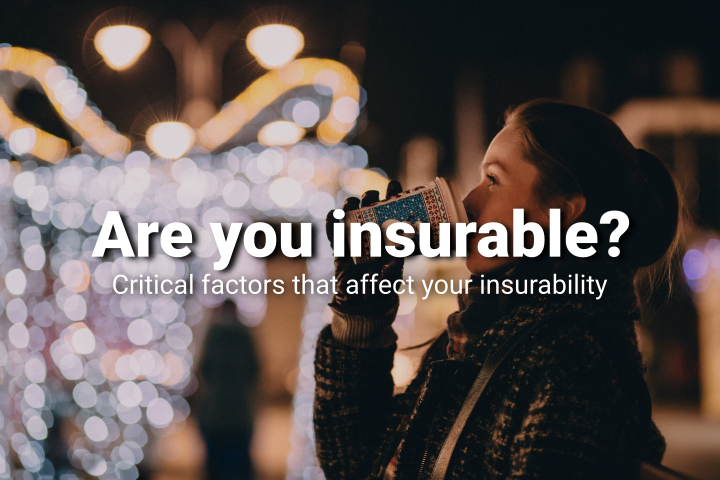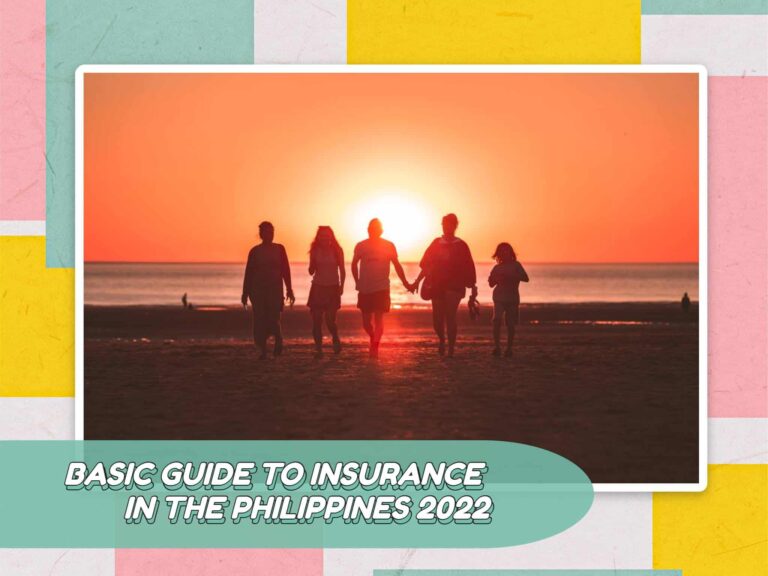Insurable Critical Factors Affect Ability Buy Insurance

Insurance companies in the Philippines offer their products to everyone. But that does not mean all can go ahead and buy a policy. That is because of one question. Are you insurable?
Insurability
Insurability means that you meet certain standards that would allow you to buy an insurance product.
Remember that insuring your life is about risks. When you get insured, you are asking the insurance company to bear the risk of your untimely death. That is, in the occasion that you pass away suddenly, they will pay death benefits to your beneficiaries.

In turn, your insurer would want to make sure that the risk they are taking in is not too much. They would need to know your status, measure the risks associated with your application to purchase a life insurance, and then check if you qualify.
In this way, they make sure that they can continue operating even when they end up paying their death benefits to policyholders or their beneficiaries.
Another purpose of checking whether you’re insurable or not is your insurance premium. Insurance premium is the money that you pay to the company in exchange of providing your cover. Your premium is cheaper if you’re healthy, and it’s higher when you’re not.
So what are the critical factors that affect your insurability?
- Age
- Gender
- Health
- Medical history
- Family history
- Job
- Moral standing
- Lifestyle
- Hobbies
- Your location
- Other factors
1. Age
You can’t be insured if you’re either too young or too old. This is due to the fact that the chances of getting sick or dying is greater for very young and elderly people.
In the Philippines, life insurance companies generally don’t provide cover for newborns. There are policies, however, that can insure a two-week old baby.
On the other hand, a term life insurance generally deny applications from people who are 55, 60, 65, 70 or older.
If you do really want to buy a policy (maybe for a parent), you can get a whole life insurance where you are covered until age 100.
2. Gender
Believe it or not, insurers factor in your gender. It’s because women tend to outlive men, and longer the lifespan, the cheaper the premium. Women might have more medical issues, like complications from pregnancy. Men, on the other hand, are more prone to lifestyles and behaviors that undermine their insurability such as smoking, addiction, occupation, hobbies, extreme sports, etc.
3. Health
Your current health and physical condition are also a factor in determining your insurability. If you are sick with a critical illness, it may lower your chances in getting insured.
You might also be asked to provide other information about your health. For example, you will be requested to disclose your weight and height to quickly determine your body mass index (BMI) or undergo medical exams.
4. Medical history
Your application might also be denied due to prior illness or history of hospitalization. Usually, insurers would ask you to disclose your medical and mental health history for the past several years.
If you have fully recovered, then there is nothing to worry. Be ready to provide diagnosis, treatments, prescription, the name of attending physician, date/hospital if you were admitted, and the result of the treatment.
5. Family history
Another information that would impact your ability to get insured is your family history. Insurers would look into a strong hereditary factors and likelihood of getting sick with certain diseases.
The usual inquiry would be about early deaths and history of serious diseases in your immediate family.
6. Occupation
Each insurer has a list of professions that they consider risky, prone to accident, or have unhealthy working conditions. There are jobs that usually expose workers to high risk of getting ill, being injured, or dying.
In the Philippines, these may include people who are involved in politics, military, law enforcement, etc. Workers in dangerous jobs such as explosives, mining, extreme sports, etc. may also face certain challenges when acquiring life insurance.
There are also companies that would not allow any elected or appointed officials, those who are members of the armed forces, and law enforcers to buy insurance.
7. Moral standing
While it is not the job of the insurers to check your moral standing, there are certain acts or behaviors that may not qualify you for an insurance such as you are addicted to alcohol, illicit drugs, or gambling, convicted of a crime, or in an adulterous relationship.
8. Lifestyle
Your lifestyle can also be part of the equation.
Having an unhealthy diet, not doing any regular exercises, and engaging in smoking or drinking can lead to physical warning signs. These signs can include compromised lungs and other vital organs, elevated blood pressure, high cholesterol and high sugar, which can be detected through a medical exam.
9. Hobbies
Hobbies and engaging in extreme sports can also affect your insurability. Examples of extreme sports are sports (car/motorbike) racing, skydiving, and scuba diving. These activities expose you to high risks of acquiring injury or even death.
10. Your location
At times, the places where you live or work can also be impact how likely you will get insured. How? Well, if you live, study, or work in a relatively peaceful location, then there is nothing to worry about.
You might be denied from getting a life cover if your residence is at the center of an ongoing armed conflict or there are threats to peace and order situation.
11. Other factors
There are also other factors. For example, some insurance companies would request for your financial status through income statements, tax returns, etc. Usually, this is a practice to check your ability to stick to your end of the bargain.
Consequences of insurability
What happens if you are not insurable? What are the consequences if you meet some, but not all, qualifications? How about when you pass all standards of insurability?
Well, there are four things that can possibly happen.
- You can buy the insurance.
- You need to wait for a period of time.
- You can buy the insurance but at a higher premium or with some exclusion.
- You are not insurable.
You can buy the insurance.
You meet the standards set by your insurer. In effect, you can buy the product that you want without any changes.
You need to wait for a period of time.
This means your application is postponed. Your insurer will decide at a later time regarding the start of your cover or when you meet a certain requirement.
A few health conditions include pregnancy or if you are in the middle of an ongoing therapy.
You can buy the insurance but at a higher premium or with some exclusion.
You may be insurable, but insurer will modify the product that they are selling to you. This is due to the level of risk that you might have. For example, you might have prior or existing diseases, such as diagnosis for diabetes, that might lead to other serious illnesses.
The insurer can change the terms of the product in two ways: loading or exclusion.
Loading means that the premium, the amount of money you pay to the insurer, would be increased. This would make the cost of the insurance product higher.
Exclusion, on the other hand, would mean that you may not be covered for specific cases. For instance, while you may be allowed to buy a life insurance, you might not be able to purchase a cover for critical illness.
You are not insurable.
You are not insurable means that you cannot buy the insurance product that you want.
The risks that you present to the insurer might be at a level that’s unacceptable to them. For example, if you are a really old person, they might not allow you to be insured because the risks of mortality is high.
How do insurance companies know your insurability
There are several ways to determine if you are insurable.
- Advisor. The advisor who sold you the insurance product will be the first to check your insurability.
- Application form. Filling out the form is another way. You are asked to provide information honestly. Doing otherwise, such not being truthful or not giving out requested information, might render the contract void.
- Medical examiner. At times, you might be asked to undergo some tests by a medical examiner appointed by the insurance company.
- Attending physician. If you have prior medical history, you would be asked to provide diagnosis, treatment, result, and information about the attending physician.
- Third party report. Insurers will also get information from third-party reports.
- Financial report. They might ask you to furnish proof of your income such as income tax return, pay slip, bank details, etc.
- Medical information bureau. They also gather reports from medical information bureau. They can check your prior hospitalization, check-ups, etc.
Frequently asked questions about insurability
Can a person convicted of a crime or involved in a lawsuit purchase a life insurance?
Generally no. However, it may depend on the insurer
Can pregnant women buy a life insurance?
There seems to be a bit of an issue for pregnant women and insurance. That’s because there are risks involved in bearing a child. Usually, the client is asked to wait for a period of time after delivery. Medical exams may be required for the issuance of a policy.


